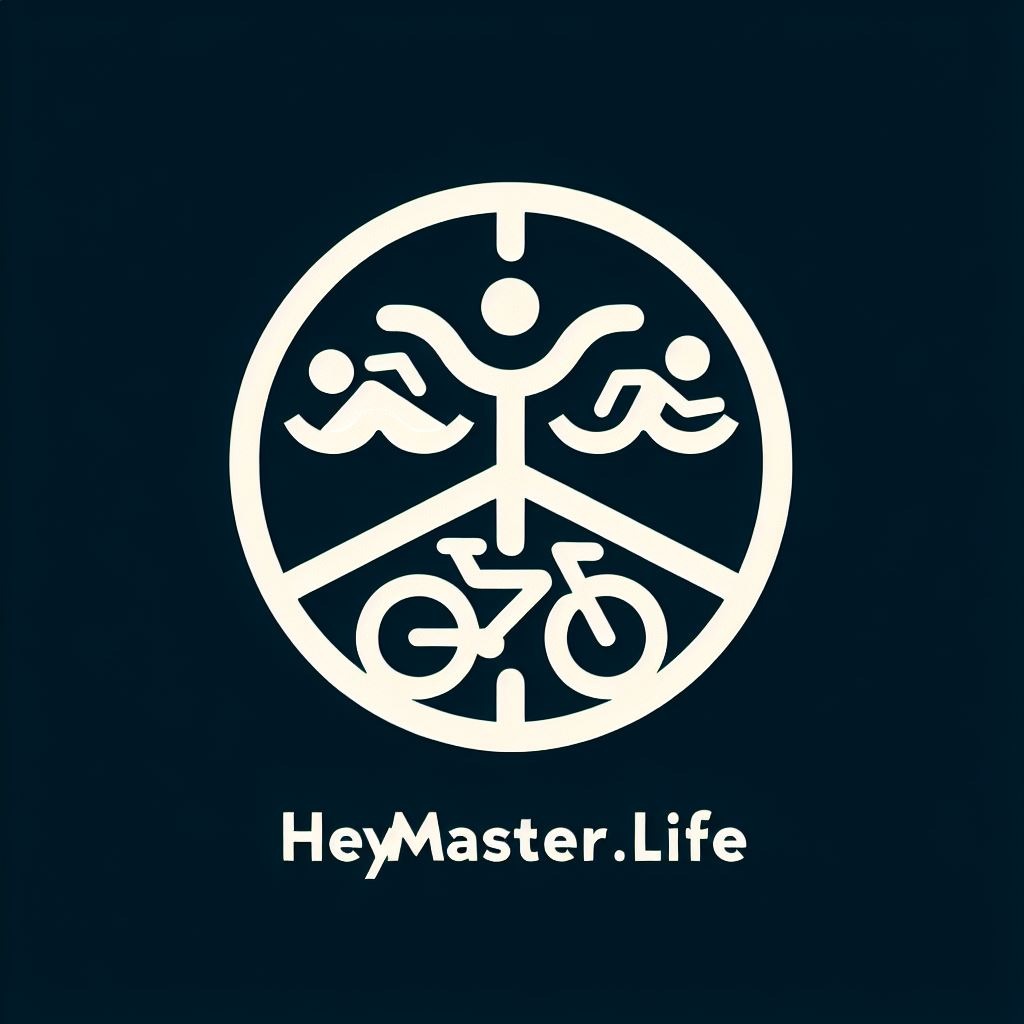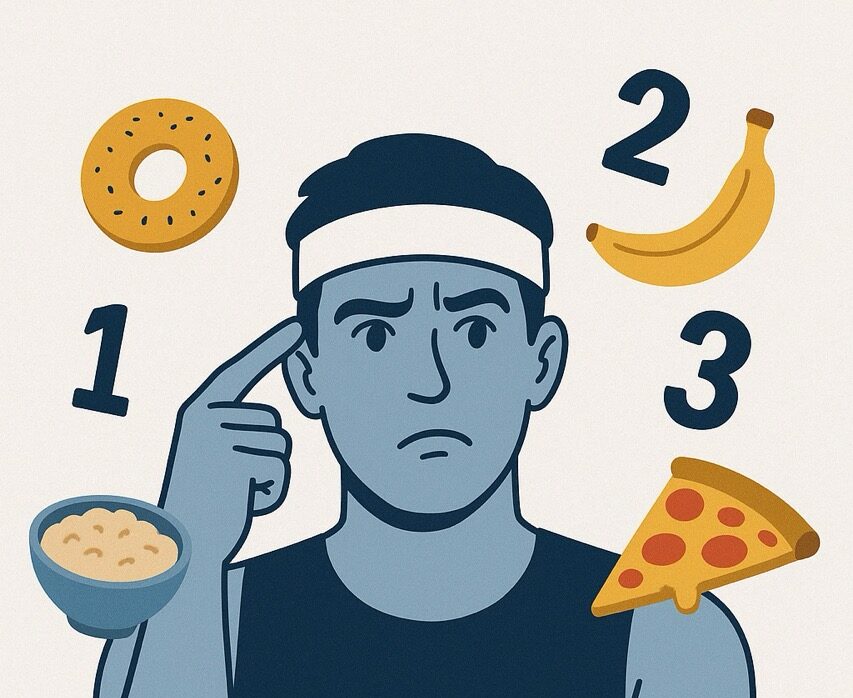Want to feel strong and steady on race day? It starts with eating the right amount of carbohydrates—at the right time. This guide breaks down exactly how many carbs to eat before your triathlon based on your body weight, using the most up-to-date sports nutrition research. Whether you’re racing an Olympic, Half-Ironman, or full Ironman, here’s how to fuel up 4, 3, 2, and 1 hour before the start gun.
Why Carbs Matter Before a Triathlon
Your muscles rely on stored carbohydrate (glycogen) for sustained energy. Starting a race with full glycogen stores can significantly improve endurance and delay fatigue—especially in events lasting more than 90 minutes [1]. That’s why both sports nutrition organizations and recent studies recommend strategic carbohydrate intake before endurance events [2][3].
Carb Intake by the Hour
Each hour closer to race time gives you a different fueling opportunity. The amount you eat should match your time window—and your body weight. Use the guideline of 1 to 4 grams of carbohydrate per kilogram of body weight (g/kg BW) depending on how many hours remain before the race [1].
4 Hours Before Race Start: ~4 g/kg BW
At this point, you have time for a full meal. Go for a large, high-carb, low-fiber meal—like oatmeal with banana and honey, pancakes with syrup, or rice with fruit juice.
• Example for 70 kg athlete: ~280 g carbs
• Why it works: This amount maximizes glycogen stores and is fully digested by race time [2][4].
3 Hours Before: ~3 g/kg BW
Still plenty of time for a solid meal, though a bit smaller than at 4 hours. Think: a bagel with jam and a banana, or pasta with light sauce.
• Example for 70 kg athlete: ~210 g carbs
• Tip: Keep fat and fiber low to avoid digestive issues [2][5].
2 Hours Before: ~2 g/kg BW
Time to scale down. You want something lighter and fast-digesting—like a bowl of cereal, energy bar, or smoothie.
• Example for 70 kg athlete: ~140 g carbs
• Pro move: Use higher-GI carbs here for quicker energy availability [3][6].
1 Hour Before: ~1 g/kg BW
Now’s the time for a quick snack or drink to top off energy stores—think sports drink, energy gel, banana, or rice cake with jam.
• Example for 70 kg athlete: ~70 g carbs
• Why it helps: Maintains blood glucose without overloading your stomach [4][7].
Scaling by Distance
• Sprint/Olympic: Aim for the lower to mid-range of the 1–4 g/kg scale.
• Half/Full Ironman: Lean toward the upper end—fueling aggressively makes a bigger difference over 4–12 hours of racing [1][3].
Quick Sum Up
| Timing Before Start | Recommended Carb Intake (g/Kg BW) | Example for 70Kg athlete (approx.) |
| 4 hours prior | ~4 g/kg (3–4 g/kg range) | ~280 g carbs (e.g. large breakfast) |
| 3 hours prior | ~3 g/kg (2–3 g/kg range) | ~210 g carbs (substantial meal) |
| 2 hours prior | ~2 g/kg (1–2 g/kg range) | ~140 g carbs (light meal/snack) |
| 1 hours prior | ~1 g/kg (0.5–1 g/kg range) | ~70 g carbs (quick snack or drink) |
Final Tips
Practice in training to find what works for your gut.
• Stay hydrated with water or a sports drink alongside your carbs.
• Don’t underfuel. Many athletes—especially women—tend to eat less than recommended [8].
References
1. Thomas DT, Erdman KA, Burke LM. Nutrition and Athletic Performance. Med Sci Sports Exerc. 2016;48(3):543–568.
2. Jeukendrup AE. Nutrition for endurance sports: Marathon, triathlon, and road cycling. J Sports Sci. 2011;29(sup1):S91–S99.
3. Burke LM, Hawley JA, Jeukendrup AE, Morton JP. Carbohydrates for training and competition. J Sports Sci. 2023;41(1):1–12.
4. Kreider RB, Wilborn CD, et al. ISSN Position Stand: Nutrient Timing. J Int Soc Sports Nutr. 2022;19(1):20.
5. Otten JJ, Hellwig JP, Meyers LD. Macronutrient Timing in Sport. Sports Med. 2020;50(Suppl 1):93–103.
6. Stellingwerff T, Cox GR. Pre-exercise carbohydrate ingestion and endurance performance. Int J Sport Nutr Exerc Metab. 2014;24(2):170–183.
7. Pfeiffer B, Stellingwerff T, et al. Carbohydrate intake and GI symptoms during endurance exercise. Med Sci Sports Exerc. 2011;43(2):210–219.
8. Costa RJS, Miall A, et al. Nutrition knowledge and practices of endurance athletes. Nutrients. 2021;13(2):389.


Leave a Reply